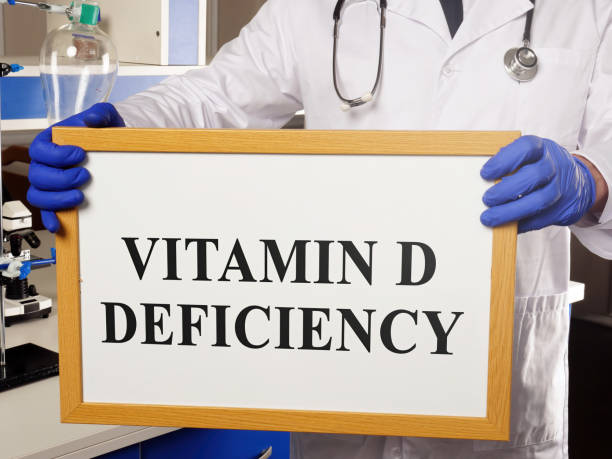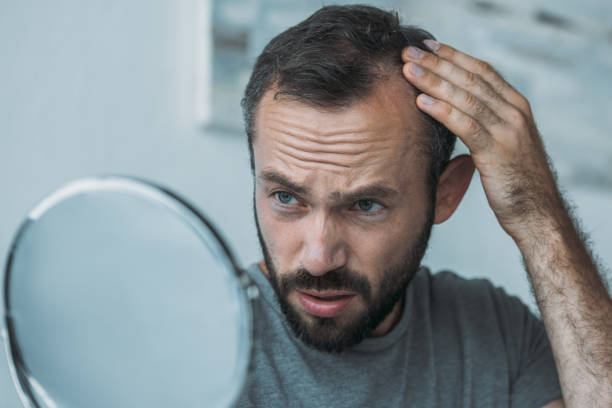You Might Have a Vitamin D Deficiency: When was the last time you saw mild sun rays in the morning? Or wait for a few minutes while your skin is soaked in the sunlight at dawn.
Are you feeling depressed? Are you always hungry? Are you facing anxiety issues? Have you put on extra belly fat?
If yes to all the above, then your body might be deficient in Vitamin D.
Vitamin D deficiency is quite common, and yet most people are not aware of when they suffer from it. That’s because the symptoms are often subtle and non-specific, meaning it’s hard to know if they’re caused by low Vitamin-D levels or something else.
Mild sunlight in the morning is the best source of Vitamin D. Other sources of Vitamin D are cheese, egg yolks, soymilk, fatty fish, salmon, tuna, mackerel, and mushrooms. If your daily exposure to sunlight is limited because you wake up at a later hour, if you stay indoors for a long duration, live in northern latitudes, or have an occupation that prevents sun exposure you may be at risk of Vitamin D deficiency.
If you think you may have a deficiency, it’s essential that you speak to your doctor and get your blood levels measured.
Fortunately, a vitamin D deficiency is usually easy to fix.
You can either increase your sun exposure during the morning or eat more Vitamin-D-rich foods, such as fish or fortified dairy products. You can also find a variety of Vitamin-D supplements. Vitamin D supplements should be taken with the advice of a doctor.
How common is vitamin D deficiency?
Vitamin D deficiency is a common global issue. About 1 billion people worldwide have vitamin D deficiency, while 50% of the population has vitamin D insufficiency.
Approximately 35% of adults in the United States have vitamin D deficiency.
Why is vitamin D good for the body?

Vitamin D plays an important role in several metabolic processes: it is essential for strong bones over time because it affects the absorption of calcium and phosphorus; it keeps the heart and cardiovascular system healthy, along with the thyroid gland, and helps reduce inflammation and control infections.
What happens if you’re having vitamin D deficiency?
If no action is taken, in the most severe cases of hypovitaminosis D it is possible to incur certain diseases, such as those of bone metabolism (rickets, osteoporosis, osteomalacia), and likewise in the weakening of jaw bones, becoming more prone to periodontitis.
Also linked to vitamin D deficiency are hypertension, diabetes, fibromyalgia, and neurological disorders such as multiple sclerosis.
What are the symptoms of vitamin D deficiency?
These are the common symptoms to look out for in case you are vitamin D deficient. However, a blood test is recommended for a proper diagnosis.
Depression and Anxiety

The body produces serotonin from the body chemical melatonin, melatonin is produced in response to sunlight, the more exposure to sunlight results in more melatonin thus more serotonin.
Too little serotonin leads one to feel cranky, irritable, depressed, and anxious.
You have weak bones
This could be the most obvious sign that you might not be meeting your vitamin D needs. The vitamin is crucial for healthy, strong bone formation. If you routinely experience bone breaks or stress fractures, you could be vitamin D deficient. If you are experiencing any of these symptoms, talk to your doctor to see the best course of treatment and to learn if a vitamin D supplement could be right for you.
Hair loss

A deficiency of vitamin D can contribute to hair loss and inhibit hair growth because it stops the life cycle of the follicle. In extreme scenarios, its insufficiency can also lead to alopecia–the total loss of hair and body hair.
Poor immune function, increased risk of illness or infections
One of vitamin D’s most important roles is keeping your immune system strong so you’re able to fight off viruses and bacteria that cause illness. It directly interacts with the cells that are responsible for fighting infection.
Poor wound healing
It’s also been suggested that vitamin D’s role in controlling inflammation and fighting infection is important for proper healing.
Muscle pain, bone pain, low bone density

Due to vitamin D deficiency, there will be inadequate absorption of calcium in the body, vitamin D helps in the absorption of calcium. In case of inadequate Vitamin D in the body low bone mineral density can occur which results in chronic muscular pain, pain in joints, and osteoporosis.
Fatigue
One of the most common symptoms of severe vitamin D deficiency is chronic end-of-life fatigue. However, in rare cases, the opposite may occur, so dietary supplements should only be taken after consulting a doctor.
The Bottom Line
Vitamin D is involved in many important bodily functions, from bone health to brain health. But meeting needs is easier said than done. This is especially true if you follow a vegan diet or live in a cold climate. Feeling more depressed than usual or having high blood pressure could be symptoms of an underlying deficiency. If you’re concerned about your vitamin D levels, talk to your doctor or nutritionist about a serum vitamin D test, or make sure the supplement is right for you.
Also read | Agra man tests positive for covid on returning from US



